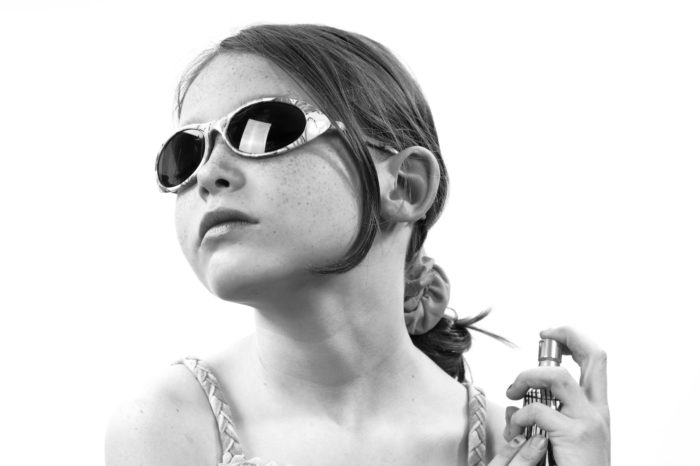The 3 Unique Challenges of the Parentified Child in Adulthood

Marc
Marc’s parents divorced when Marc was seven. From that point on, he was raised by his mother, with occasional “check-ins” by his father. Marc’s mother owned and managed a deli, and had to work long hours to support Marc and his two younger siblings. Marc hurried home from school to pick up his siblings at the bus stop, made dinner for them, and often was responsible for getting them to bed.
Alise
When Alise was nine, her mother was diagnosed with multiple sclerosis. As Alise grew into middle school and high school, her mother was at home, getting sicker and sicker. The more disabled her mother got, the more Alise picked up the slack at home. She cared for her mother, did the grocery shopping, and even fought with insurance companies over her mother’s medical needs.
There are many ways in which the child can become what therapists call, “parentified.” Addicted, depressed, financially pressured, physically ill, or bereaved parents are some examples.
Believe it or not, there is a silver lining to being parentified. Marc, for example, grew up to be a very responsible man. He worked his own way through college because he was determined to have a career. He didn’t want to struggle financially, as his mother did. Marc is now a giving, caring husband and father. He knows how to parent because he did it as a child.
Like Marc, Alise is also a very responsible adult. She’s a research scientist in the medical field. Alise is driven to find cures for incurable diseases, and she works long hours by choice to meet her passionate goal. She is a loving mother and wife. Alise is excellent at giving and care-taking, for her family and for the world. Because her childhood prepared her to be.
Yes, there are far worse things that one’s childhood can prepare her to be. In many ways, Marc and Alise are in an excellent position to live happy, productive lives.
However, there is a serious downside to being parentified.
The 3 Unique Challenges of the Parentified Child
- Excessive self-sacrifice: If you grew up caring for others, you may not have learned how to care properly for yourself. You may not have learned something that everyone else knows: that your first and primary responsibility in your life is your own health and happiness. Unless you take care of yourself first, you will be depleted by your life.
- Regret: When the child becomes the parent, she grows up far too soon. This leaves you with a feeling of sadness and loss when you look back on your childhood. “I never got to be a kid,” you lament. You hear stories of other peoples’ childhoods, and you feel envious and sad. You are sentenced to a lifetime of regret.
- Co-Dependence: When you are programmed as a caretaker, it becomes difficult to step out of the caretaker role. This, in some ways, is a set-up. You are more likely to form friendships with or marry people who need care, and stay with them far too long. At your own expense.
Marc
Marc learned many lessons from his childhood. He works long hours and supports his family well. Yet as those around Marc thrive and grow, Marc does not. His wife, and the mother of his children, is an alcoholic. So while she repeatedly drinks, passes out, and drops the ball in caring for the children, Marc quietly picks up the slack. He tries and tries to help her get sober. He lives under a black cloud, and cannot see that he has simply re-created his childhood.
Alise
Alise is busy saving the world, and this is her blessing and her curse. She enjoys success and the love of her family, yet she grows more and more tired every day. Alise learned everything she needs to thrive in her childhood, except for one key thing. She did not learn that her needs are important. In fact, she didn’t learn that she even has needs. Alise lives under the same cloud as Marc. Each day she wonders what joy is. Each day she longs for what’s missing in her life.
3 Steps for Marc, Alise, and You
- Put yourself first. Accept that you have needs, and pay attention to what they are. When you need healthy food, fun, rest, fresh air or alone time, take it.
- Replace the joy you missed as a child by finding it now. You didn’t get to run free through the neighborhood with your friends, or be doted on by two caring parents? Maybe you didn’t learn the feeling of emotional freedom? Learn it now. Discover what you love, and pursue it. Seek joy, and know that you’ve earned yours.
- Stop over-caring for those around you. Life is short, and you are living yours for others. This is your time to turn your powerful caring skills toward yourself.
If you were in the role of the parent as a child, your life is about to change. You are about to re-parent yourself in a way that you missed as a child. You’re going to start living as you were always meant to live and experiencing the joy, happiness, and care that you’ve always deserved.
To learn more about the parentified child as well as other forms of Childhood Emotional Neglect and how to heal from them, see the book, Running on Empty: Overcome Your Childhood Emotional Neglect and Take The Emotional Neglect Test. It’s free on this website.
A version of this article was originally published on psychcentral as When the Child Becomes the Parent. It has been reproduced here with the permission of psychcentral.
